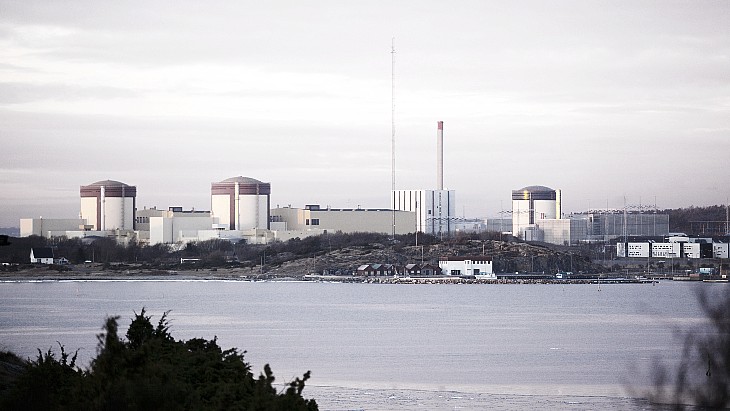In June 2022, state-owned energy company Vattenfall announced it was initiating a pilot study to assess the conditions for proceeding with a decision to build at least two small modular reactors (SMRs) adjacent to the Ringhals plant. It aims to bring the new reactors into operation in the early 2030s.
The company has now said it has shortlisted Rolls-Royce SMR and GE Hitachi Nuclear Energy for ongoing evaluation from a list of six potential SMR suppliers.
It said the next steps will involve detailed analysis of the proposals made by the two shortlisted SMR suppliers, and then jointly producing a timetable for the option of building SMRs next to the existing Ringhals nuclear power plant.
In parallel, Vattenfall will continue to investigate the conditions for building large-scale reactors at Ringhals. The suppliers included in the evaluation of large-scale reactors are Westinghouse, EDF and Korea Hydro & Nuclear Power.
"Shortlisting two potential suppliers of small modular reactors is one of several steps in our continued work towards new nuclear power on the Värö Peninsula at Ringhals," said Desirée Comstedt, head of new nuclear power at Vattenfall. "It is also a prerequisite for us to be able to continue to move forward at speed with the extensive work involved, which requires us - among other things - to submit applications for new nuclear reactors for examination by the responsible Swedish authorities."
She added: "We haven't made a choice of reactor technology yet. Regardless of whether we choose small modular reactors or large-scale reactors, a future investment decision will, among other things, require a reasonable risk-sharing model with the state. This is necessary to lower financing costs and thereby enable a reasonable cost for electricity production that customers are prepared to pay."
Technology assessments
In October 2022, Sweden's incoming centre-right coalition government adopted a positive stance towards nuclear energy, with the Christian Democrats, the Liberals, the Moderates and the Sweden Democrats releasing their written agreement on policies - referred to as the Tidö Agreement. The agreement said necessary regulations should be developed to create the conditions for the construction and operation of SMRs in Sweden. In addition, the permitting process for nuclear power plants must be shortened.
Sweden's Radiation Safety Authority (SSM) has now proposed that it be allowed to evaluate new reactor technology even before an actor formally applies for a permit. It said this can both give time for SSM to familiarise itself with how a specific reactor is structured and shorten the lead times for processing a permit application.
"An actor who develops a reactor technology or wants to apply for permission for the technology may already need to know before a formal application whether the technology meets the requirements set by laws and regulations," it said. "In the case of an evaluation at an early stage, there are good opportunities to change the design or the tests and analyses that are carried out. Before an application, this can save time and also resources, both for the applicant and for the authority."
In a report to the government, SSM describes how an early evaluation of new reactor technology can be carried out. The evaluation is proposed to be voluntary and open to both developers of reactors and potential owners and licensees. However, it says the applicant needs to be "a competent and stable counterpart to the authority" and there must be a concrete interest in using the reactor technology in Sweden. It proposes that the cost of the valuation is covered by a fee charged by the authority.
"For the Radiation Safety Authority, an evaluation of new reactor technology provides good opportunities to build up expertise on new reactor concepts at an early stage, which streamlines a possible future permit review and makes it more predictable," said SSM Director General Michael Knochenhauer.















